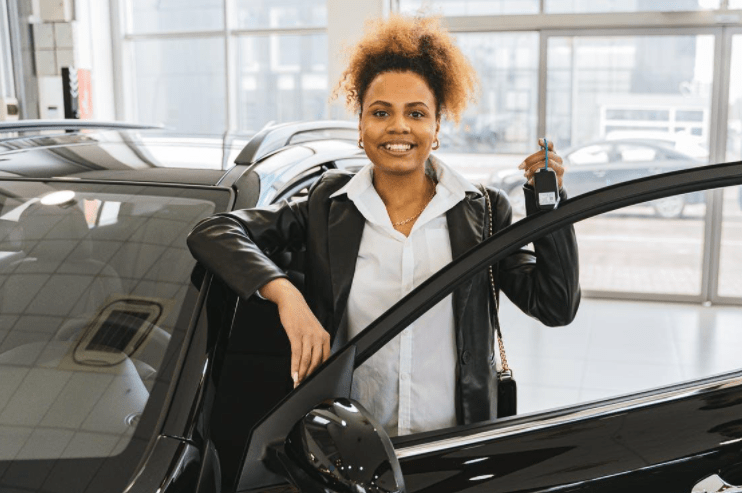It depends on what type of owner you are. Do you like to hold onto your vehicle for years-long or switch it out frequently? Do you dislike paying full insurance? Do you drive a lot of miles? Your answer could steer your decision.
If you’re looking for the most cost-efficient option over the long term, buying a used vehicle and keeping it for a few years after you’ve fully paid it is often the best choice. However, if you’re tech-savvy or someone who is always after the most up-to-date safety features, leasing might give you that freedom without breaking the bank.
In reality, there’s no one-size-fits-all option when it comes to the most ancient question of lease or buy. Yet, identifying some key factors related to your personal preferences and cost can help you decide what’s right or not for you.
Before dashing into the first auto dealership, make sure you first understand your finances and take control of your money and needs.
Leasing vs. buying a car: what’s the difference?
Though the result is you driving a new vehicle, buying and leasing are two separate things.
http://economyleasing.co.uk is the main way of leasing a car. You will pay a small deposit and monthly rental fee for an agreed amount of time. That’s normally two or three years, but it can vary.
Once your lease period ends, you will need to hand the vehicle back – or purchase it at a pre-determined amount, which is specified in the lease contract.
On the other hand, buying provides you with complete ownership of the car or have the option to do so in the case of PCP finance.
Lease Payments
Lease payments are normally lower than the monthly payments for a new car because they’re based on a vehicle’s depreciation during the period you’re driving it instead of its purchase price.
Lower monthly payments are well-appreciated if you want to balance your budget, but keep in mind that when you’re leasing, your monthly payments won’t end in ownership. However, you will be likely to lease again, which means additional monthly lease payments. Buying, on the other hand, means your monthly payments will likely stop when you pay the entire amount.
Insurance costs
Collision coverage may be necessary when you’re financing a vehicle or taking on a lease. It might be a good idea to opt for gap insurance, as well, though some lease agreements include it without extra cost (it’s always a good idea to ask whether it’s included).
Before signing for gap insurance, take your time to compare quotes from various insurers before deciding on the plan. By doing so, you will be able to find the most cost-effective option for you and can be more affordable than purchasing insurance through a dealer.
Full Payment
Planning to finance your next car? The necessary card down payment could be around 10% to 20% of the vehicle’s full cost. The actual payment you’d need to come up with can depend on different things, such as your credit score or driving history. For instance, if you’re someone with a low credit score and want to finance a more expensive, then you would likely have to come up with a larger payment.
A car with less-expensive features or a used one might be the solution to a more budget-friendly dull payment, especially when you can’t rely on your credit score.
Leasing, on the other hand, also requires considerable upfront costs, such as the first month’s payment and down payment – especially if you plan to negotiate the lowest possible amount.
Though leasing remains a cost-effective alternative to car buying, remember that you’re potentially paying for something you won’t own completely.
While a larger down payment might be a good idea if you’re purchasing a new car, that doesn’t really apply to leasing. Also, if you can’t handle soli lease terms, then you should try keeping your down payment as low as possible.
Repair Costs
How prone are you to getting a lot of bumps and dings? If you’re commuting daily on long distances or live in a crowded city, you may be at risk of placing excessive wear and tear on your vehicle.
Repairs cost will hit you no matter if your buy or lease. Vehicles are typically leased for a period of three years, so if you get a brand-new car, it will likely be under warranty for the entire lease period. However, you may still need to pay for repairs and maintenance, not to mention you might even be required to replace scratched windows, worn tires, and other flaws when you return the vehicle.
The cost of repairs can also raise significantly as the car gets older. If you decide to buy, you might need to have a separate budget for regular upkeep and maintenance.
The good news is, once your car is paid off, the money that you previously saved for monthly payment can be set aside to help cover your yearly maintenance costs.
Flexibility
Leasing a car can be great if you get tired of cars quickly and want something new every year. But car leasing might not be as flexible as you think. If your needs change or you simply get tired of your car, you may want to rethink your decision about turning the car before the end of the lease period.
Breaking your lease early might bring you some steep penalties. There’s also a good chance you will be asked to cover all of the remaining lease payments and pay extra fines on top of any other fees.
Having complete ownership offers you more freedom to get rid of your car. You can sell whenever you want without suffering fees- though you may still need to be careful at any remaining balance on your loan. If you know how often you will want a new car, you will know if it’s the case to buy or lease.

